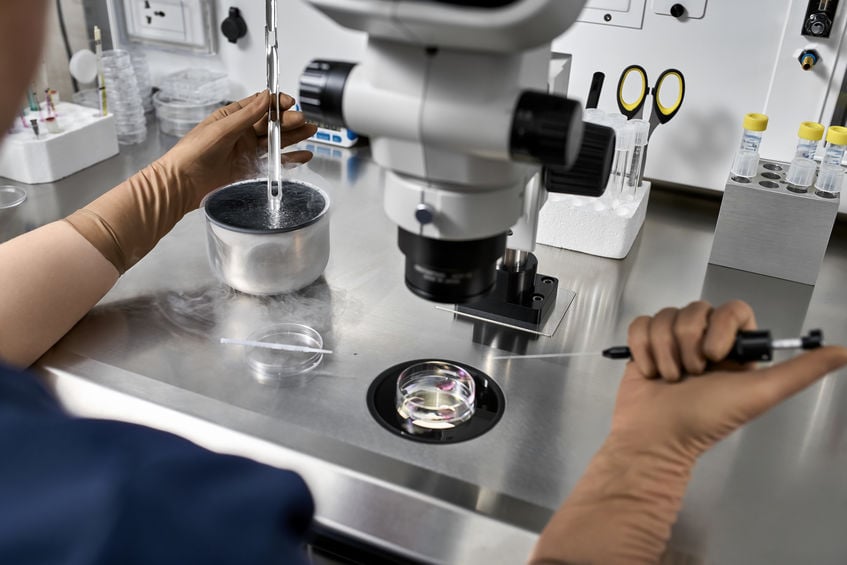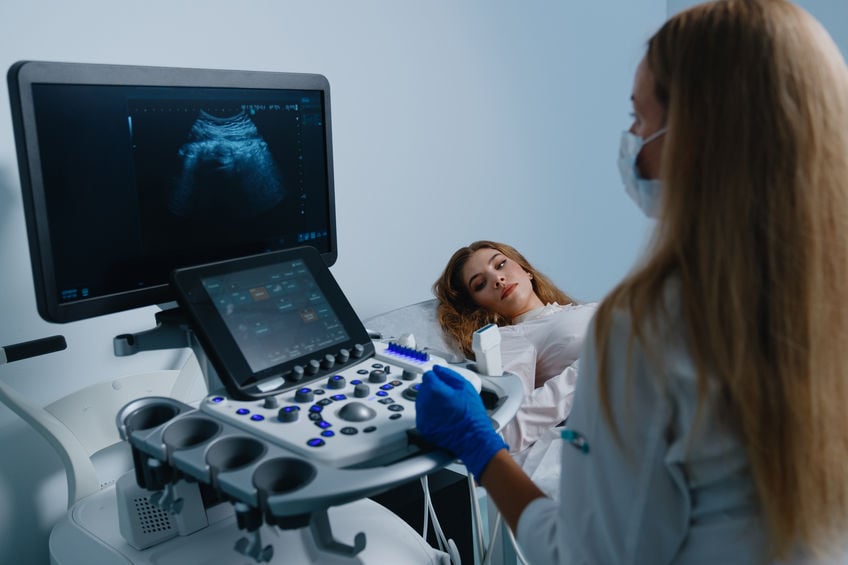Freezing Eggs Before Cancer Treatment
A diagnosis of cancer comes as a complete shock for most people. For women of reproductive age, the shock and grief can be compounded with concerns about fertility. Many cancer treatments can negatively harm reproductive potential, so oocyte cryopreservation before treatment begins is essential. To ensure the dreams of having or growing a family after cancer are possible, women should consider freezing eggs as soon as possible.

Surgical impacts on fertility
Regardless of where the cancer is located, treatment is typically needed soon after a diagnosis is made. In some cases, such as uterine or cervical cancer, surgery is required. A hysterectomy removes the uterus, an oophorectomy removes just the ovaries, and a trachelectomy removes the cervix. In all cases, fertility is negatively impacted. When the uterus is removed, a woman can no longer carry a pregnancy, but a surrogate can help in the future. If the uterus remains, such as with an oophorectomy or trachelectomy, pregnancy is possible with the use of in vitro fertilization (IVF) to transfer previously stored or donor eggs.
The effects of radiation
Another effective way to kill cancer cells is radiation therapy. High-energy radiation waves are directed at the area affected by the cancer. Radiation can scatter and reach the ovaries if the pelvic area is treated, negatively impacting fertility. In many cases, high doses of radiation can destroy some or all the eggs in the ovaries, causing infertility or early menopause. If the treated area is further away from the reproductive organs, some eggs may survive. However, with many unknowns about the quantity and quality of the remaining eggs, cryopreservation prior to radiation treatment is the safest bet to preserve fertility.
Chemotherapy is a risk
Another go-to cancer treatment is chemotherapy, which works by killing the cells in the body that are dividing too quickly and causing cancer. Oocytes, or cells in the ovaries responsible for making pregnancy hormones, also divide quickly, so this reproductive organ can be inadvertently targeted by chemotherapy treatment. Since fertility is a complex issue affected by age, menstrual history, hormone levels, and the type of chemotherapy used, healthcare providers have a hard time predicting whether a baby will be possible after treatment. Egg freezing before chemo offers peace of mind in the face of many unknowns.
The cryopreservation process
Much like a traditional IVF cycle, women who decide to freeze eggs ahead of cancer treatment will be given fertility medication to increase egg production. Since most patients only have time for one IVF cycle before cancer treatment begins, this step is crucial. Once the eggs are mature, the doctor retrieves the specimen, and the eggs can either be stored alone or combined with a sperm sample to create embryos for future use. With cryopreservation, healthy eggs can be stored for years while the patient undergoes treatment and returns to a general healthy state where pregnancy is possible. Once ready, the embryo is transferred back into the uterus in hopes of implantation. Women who no longer have a uterus secondary to hysterectomy can use a gestational surrogate to carry the pregnancy.
The importance of oncofertility
Future fertility is often the last topic on the mind of a patient who has just received a cancer diagnosis. However, since many cancer treatments can affect hormones, eggs, and the ability to carry a future pregnancy, advanced plans are required. Oncofertility offers hope and possibilities for individuals facing cancer. With eggs or embryos frozen, women can undergo treatment knowing that even if fertility is negatively impacted, a future pregnancy is still possible.




